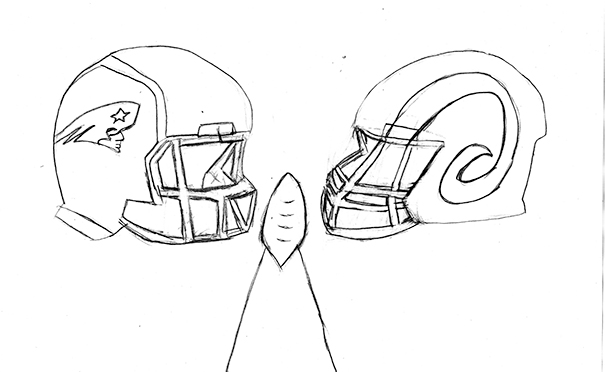One player was widely considered the most prolific power hitter the game has ever seen, while the other was considered one of the most consistent and over-powering pitchers the game has ever seen.
One player won seven MVP awards and the other won seven CY Young awards – both the most of all time.
One player hit the most homeruns in the history of the sport and the most homeruns in a single season.
The other player ranks third all-time in strikeouts and ninth all-time in career wins.
One player once posted a season with a .328 batting average/.515 OBP/73 home runs/137 RBI and that might not have been his best season ever.
The other player once posted a season in which he won 21 games, struck out 292 batters in 264 innings and posted an ERA of 2.05.
But perhaps the most revealing – and eventually damning – statistics of all are the numbers both players recorded after they passed the age of 35.
One was able to play five years of elite baseball, averaging a batting average of .341, 51.6 homeruns and 120.8 RBI each year over that time frame.
The other was able to play a remarkable eight more years of elite baseball, averaging a season stat line of 16-6/3.45 ERA/202.5 strikeouts over that time frame.
They were very different men, playing entirely different positions, but they have been – and forever will be – linked by one thing in common: they cheated the game and have never reconciled their betrayal.
By now, it should be obvious that the former player is Barry Bonds and the latter Roger Clemens.
Both men were dominant players who put up numbers that – in many ways – will never be replicated. Ever.
Due in large part to the aforementioned statistics – rest assured an entire column could be spent simply listing the accomplishments of each – both men are on the 2013 MLB Hall of Fame ballot.
And with their candidacy to join the halls of baseball immortality finally upon us, we are at last confronted by the moment that demands a verdict on the most controversial topic in the last century of sport: how will history treat those who cheat.
For Major League Baseball, the debate must be a painstakingly impossible and complex one. Bonds is the best hitter of his era and Clemens the best pitcher of his era.
Both were faces of the game for nearly two decades and the record book is littered with their names in the top 10 of most significant categories.
Maybe even more significant in the eyes of the league, both acted as massive draws for increased advertising revenue, attendance figures, television ratings and overall popularity of the sport.
Despite the profound impact of players like Bonds and Clemens, in the eyes of most people, their treachery has stained it all.
They cheated and soiled the purist of games in the most impure of ways. The court of public opinion overwhelmingly and unequivocally subscribes to the notion that both players were users of performance enhancing drugs (PEDs).
The significant question here is whether or not the actions of these two men were so egregious that their on-the-field numbers have become entirely irrelevant.
In other words, does using PEDs automatically and totally disqualify any player from being admitted into the Hall of Fame? The answer to this question will set a precedent about how we handle the issue of PEDs for all time.
An Associated Press Poll administered last week indicated that both players do not have enough support from voters to be inducted into the Hall.
In order to be inducted, a player must receive votes in the affirmative from 75 percent of those voting.
The poll indicated that Bonds received just 45 percent support while Clemens received just 43 percent support.
While the data points to Bonds and Clemens not being elected to the Hall this year, a player remains on the ballot for up to 15 years so long as they receive at least five percent support each year.
It is my view that if, and only if, Bonds and Clemens at some point in the future admit to what they did and fully and totally reconcile it with the public, they should be admitted into the Hall of Fame.
I wouldn’t be opposed to physically attaching an asterisk to their plaque.
In fact, I think it would be wise to create a section in Cooperstown where the steroid era was openly put on display – prominently featuring plaques of Bonds, Clemens, Sammy Sosa, and eventually those of Alex Rodriguez and Manny Ramirez.
Major League Baseball could acknowledge the realities of an era, differentiate those who cheated from those who did not, and still recognize incredible historical accomplishments.
Using PEDs does not have to be a death sentence that precludes any man’s achievements from being subjected to historical appreciation.
What Bonds and Clemens were able to do between the lines – despite their use of drugs that influenced those accomplishments – is something that should be recognized and acknowledged, even if it means stamping an ugly * on the top of their plaques in the halls of history.



















